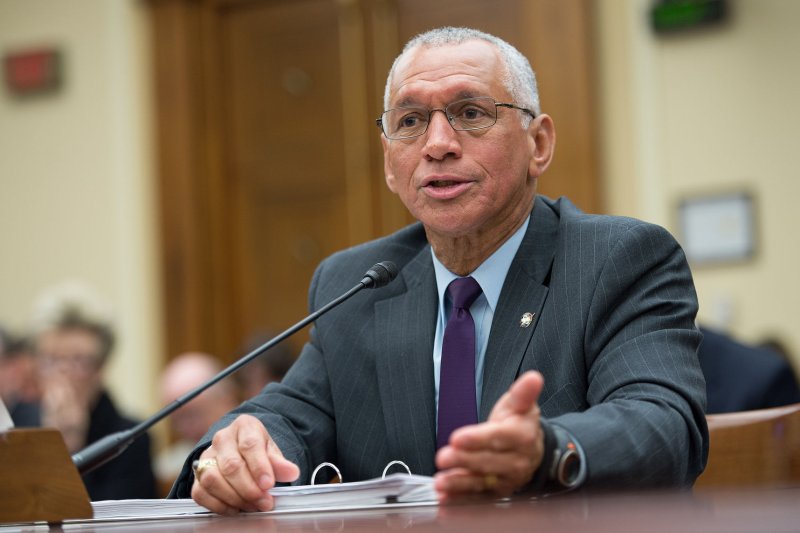1 of 4 | NASA Administrator Charles Bolden Jr. testifies during a House Science, Space and Technology Committee hearing on the FY2015 budget proposal for NASA, on Capitol Bill in Washington, D.C. on March 27, 2014. UPI/Kevin Dietsch |
License Photo
WASHINGTON, March 27 (UPI) -- Concerns over deteriorating relations with Russia spilled into Thursday's subcommittee hearing on NASA's budget for next year as congressmen sought assurances the U.S. space program had contingency plans in case Russia cut off access to the International Space Station.
Since 2011, when the Space Shuttle program was retired, the U.S. has lacked the capability to send astronauts into space, instead relying on Russia's Roscosmos while developing privately operated transportation services.
NASA Administrator Gen. Charles Bolden told members of the House Space, Science, and Technology Committee that despite growing tensions between the two countries over Russia's takeover of Crimea, their respective space agencies had no intention of halting the work on the space station.
"I am not aware of any threat, and I am comfortable because we talk to the Russians every day," Bolden testified to the Subcommittee on Space.
"There's a lot of people in Russia," he said. "Our partner is not Russia, our partner is Roscosmos. We're confident that they are just as interested and just as intent on maintaining that partnership as we are."
Bolden pointed out that there were similar concerns -- concerns that were equally unfounded -- that Russia might disrupt cooperation in space over more terrestrial concerns
"Hopefully the problems on Earth are not going to be an issue," said Rep. Lamar Smith, R-Texas, who chairs the committee.
But going forward, Bolden said NASA needed $1 billion -- or at a minimum $848.3 million -- to stay on track for implementing commercial space from the United States by 2017.
A delay in funds in previous years pushed back the program, which involves choosing between competing commercial programs to replace the Space Shuttle program to take NASA astronauts into low earth orbit, already saw the goal date pushed back from 2015 to 2017.
"We would now find ourselves months away from launching a crew from American soil, and I wouldn't have to worry about paying the Russians another $450 million dollars if Commercial Crew had gotten the funding NASA originally asked for," Bolden explained.
"If we don't get what the president requested, I can't guarantee 2017, I can't guarantee competition, and we will continue to pay the Russians," he said. "I don't like that."















